Regency Reader Question
I have always understood that dukes are very rare, and in the English peerage, most have a connection or actual blood relationship to the Royal Family. In romantic fiction however, there seem to be more dukes than scullery maids! How many dukes were actually around during the Regency? I know about all the Prince Regent’s brothers and their romantic misadventures, but were there other single dukes at the time?
| Source of Question | Just curious |
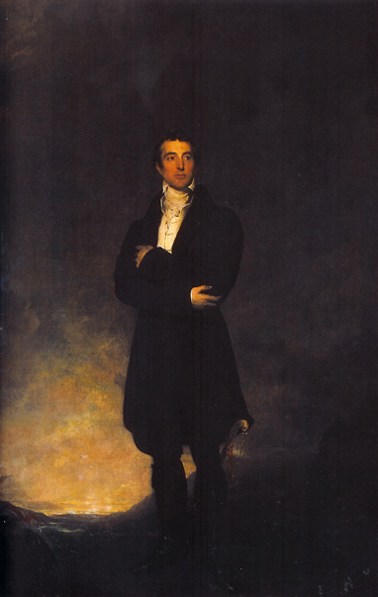
Portrait of a brooding Duke of Wellington
Thanks for the question, Anja! I have been meaning to touch on this topic for the Representing Regency series…so I am glad to dive in.
Sooooo many Duke books among the Regency genre for the last decade or so. So. Many. Dukes. I have had some convos on Twitter about this topic and the consensus seems to be that folks looking for fantasy want the Duke or Prince…because they were the rich, famous, and glamorous of the era. And I am not trying to ick your yum if that is your thing…
But, there is the question of how realistic would it be for 50 million Dukes to be running around ready for the wallflower in the Regency era?
Luckily, the excellent blog Risky Regencies did the hard work to count the actual Dukedoms in existence (including in Ireland and Scotland) during the Regency era: http://www.riskyregencies.com/2015/08/07/about-those-dukes/
The answer is 31. Although author Jude Knight’s tally came up with 28 (https://judeknightauthor.com/tag/too-many-dukes-in-regency-romance/).
And after I took a peek, depending on what you call the Regency (some are strict and go with 1811-1820), there were 28, as one Duchy was created in 1822, and two sets of Dukes had two Duke titles.
I found this out by doing the work of looking to see what the succession/humans looked like, and for my own interest kept the span from 1800-1830.
Here is the first chart I produced:
| Duke Title | Name | Age At Succession (year) | Age At Death (year) |
| Norfolk | Charles Howard | 69 (1815) | |
| Bernard Howard | 50 (1815) | ||
| Somerset | Edward St. Maur | 25 (1800) | |
| Richmond | Charles Lennox | 55 (1819) | |
| Charles Gordon-Lennox | 28 (1819) | ||
| Grafton | Augustus Fitzroy | 76 (1811) | |
| George Fitzroy | 51 (1811) | 84 (1844) | |
| Beaufort | Henry Somerset | 58 (1803) | |
| Henry Charles Somerset | 37 (1803) | 69 (1835) | |
| St. Albans | Aubrey Beauclerk | 62 (1802) | |
| Aubrey Beauclerk | 37 (1802) | 50 (1815) | |
| William Beauclerk | 49 (1815) | 59 (1825) | |
| Leeds | George William Frederick Osborne | 63 (1838) | |
| Bedford | Francis Russell | 37 (1802) | |
| John Russell | 36 (1802) | 73 (1839) | |
| Devonshire | William Cavendish | 63 (1811) | |
| William George Spencer Cavendish | 21 (1811) | 68 (1858) | |
| Marlborough | George Spencer | 78 (1817) | |
| George Spencer Churchill | 51 (1817) | 74 (1840) | |
| Rutland | John Henry Manners | 79 (1857) | |
| Brandon | Held by Duke of Hamilton (see below) | ||
| Ancaster & Kesteven | Brownlow Bertie* | 80 (1809) | |
| Portland | William Cavendish-Bentinck | 71(1809) | |
| William Bentinck | 41 (1809) | 86 (1854) | |
| Manchester | William Montagu | 72(1843) | |
| Dorset | George Sackville | 22 (1815) | |
| Charles Sackville-Germain* | 48(1815) | 76(1843) | |
| Bridgewater | Francis Egerton* | 67(1803) | |
| Newcastle-under-Lynne | Henry Pelham Fiennes Pelham-Clinton | 66(1851) | |
| Northumberland | Hugh Percy | 75(1817) | |
| Hugh Percy | 32(1817) | 62(1847) | |
| Wellington | Arthur Wellesley** | 45(1814) | 83(1852) |
| Buckingham and Chandos | Richard Temple-Nugent-Brydes-Chandos-Grenville** | 46 (1822) | 63(1839) |
| Leinster (Irish) | William FitzGerald | 55(1804) | |
| Augustus FitzGerald | 13(1804) | 83(1874) | |
| Hamilton (Scottish) | Archibald Hamilton | 79(1819) | |
| Alexander Hamilton | 52(1819) | 84(1852) | |
| Buccleuch (Scottish) | Henry Scott | 66(1812) | |
| Charles Montagu-Scott | 40(1812) | 47(1819) | |
| Walter Montagu Douglas Scott | 13(1819) | 78(1884) | |
| Lennox (Scottish) | Charles Lennox | 56(1806) | |
| Charles Lennox | 42(1806) | 54(1819) | |
| Charles Gordon-Lennox | 28(1819) | 69(1860) | |
| Gordon (Scottish) | Alexander Gordon | 83(1827) | |
| George Gordon | 57(1827) | 66(1836) | |
| Queensberry (Scottish) | William Douglas | 86(1810) | |
| Henry Scott*** | 63(1810) | 65(1812) | |
| Charles Montagu-Scott*** | 59(1812) | 46(1819) | |
| Walter Francis Montagu Douglas Scott*** | 13(1819) | 78(1884) | |
| Argyll (Scottish) | John Campbell | 82(1806) | |
| George Campbell | 38(1806) | 71(1839) | |
| Atholl (Scottish) | John Murray | 75(1830) | |
| Montrose (Scottish) | James Graham | 81(1836) | |
| Roxburghe | John Ker | 63(1804) | |
| William Bellenden-Ker | 76(1804) | 66(1805) | |
| James Innes-Ker | 69(1805) | 87(1823) | |
| James Innes-Ker | 7(1823) |
*Last Duke/title extinct
**First Dukes
***Held both Buccleuch and Queensbury titles
I whittled that down the Regency era (1811-1820), and came up with this handy chart:
| Age Range | 1811 | 1812 | 1813 | 1814 | 1815 | 1816 | 1817 | 1818 | 1819 | 1820 |
| 11-18 | 1 | 1 | 1 | |||||||
| 19-26 | 3 | 3 | 3 | 3 | 3 | 2 | ||||
| 27-34 | 1 | 2 | 1 | 1 | 1 | 1 | 4 | 4 | 6 | 4 |
| 35-42 | 2 | 3 | 4 | 3 | 2 | 2 | 2 | 1 | 1 | 2 |
| 43-50 | 6 | 6 | 6 | 8 | 11 | 8 | 6 | 5 | 4 | 2 |
| 51-58 | 3 | 3 | 3 | 1 | 2 | 4 | 7 | 8 | 10 | 11 |
| 59-66 | 2 | 1 | 2 | 2 | 2 | 2 | 2 | 3 | 3 | |
| 66+ | 6 | 6 | 6 | 6 | 6 | 5 | 5 | 3 | 3 | 2 |
And then produced a visualization of data for 1815 to show how many marriageable Dukes there actually were in the Regency:
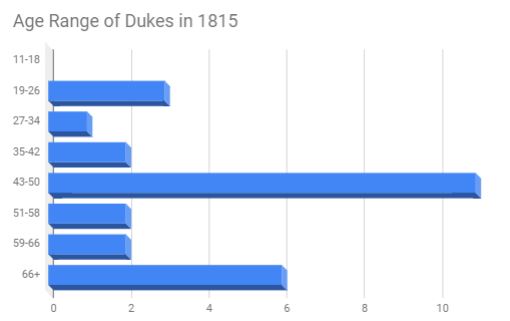
Men did (and still do) marry at older ages and produce offspring, so I guess what you consider marriageable can be broad. There were also a few Dukes who married young. So most of the dudes/Dukes on the board would’ve been marriageable, if not of the age most Regency romances pick for the hero.
Now for the second part of the question. Who, in the Regency era, was unwed/marriageable. For that, I produced another chart.
| Duke Title | Name | 1811-1820 married |
| Norfolk | Charles Howard | x |
| Bernard Howard | divorced in 1794 | |
| Somerset | Edward St. Maur | x (married 1800 |
| Richmond | Charles Lennox | x |
| Charles Gordon-Lennox | x married 1817 | |
| Grafton | Augustus Fitzroy | x |
| George Fitzroy | x | |
| Beaufort | Henry Somerset | x |
| Henry Charles Somerset | x married 1814 | |
| St. Albans | Aubrey Beauclerk | x |
| Aubrey Beauclerk | x | |
| William Beauclerk | x | |
| Leeds | George William Frederick Osborne | x |
| Bedford | Francis Russell | nope, but he had a menage a trois with Viscount and Lady Maynard |
| John Russell | x married 2nd wife 1803 | |
| Devonshire | William Cavendish | x |
| William George Spencer Cavendish | ||
| Marlborough | George Spencer | x |
| George Spencer Churchill | x | |
| Rutland | John Henry Manners | x |
| Brandon | Held by Duke of Hamilton (see below) | |
| Ancaster & Kesteven | Brownlow Bertie* | |
| Portland | William Cavendish-Bentinck | x |
| William Bentinck | x | |
| Manchester | William Montagu | x in 1812 his wife ran off with a footman |
| Dorset | George Sackville | |
| Charles Sackville-Germain* | ||
| Bridgewater | Francis Egerton* | |
| Newcastle-under-Lynne | Henry Pelham Fiennes Pelham-Clinton | x married in 1807 |
| Northumberland | Hugh Percy | x |
| Hugh Percy | x married 1817 | |
| Wellington | Arthur Wellesley** | x married 1806 |
| Buckingham and Chandos | Richard Temple-Nugent-Brydes-Chandos-Grenville** | x |
| Leinster (Irish) | William FitzGerald | x |
| Augustus FitzGerald | x married 1818 | |
| Hamilton (Scottish) | Archibald Hamilton | x |
| Alexander Hamilton | x married 1810 | |
| Buccleuch (Scottish) | Henry Scott | x |
| Charles Montagu-Scott | x | |
| Walter Montagu Douglas Scott | ||
| Lennox (Scottish) | Charles Lennox | x |
| Charles Lennox | x | |
| Charles Gordon-Lennox | x married 1817 | |
| Gordon (Scottish) | Alexander Gordon | x |
| George Gordon | x married 1813 | |
| Queensberry (Scottish) | William Douglas | |
| Henry Scott*** | x | |
| Charles Montagu-Scott*** | x | |
| Walter Francis Montagu Douglas Scott*** | ||
| Argyll (Scottish) | John Campbell | x |
| George Campbell | x married 1810 | |
| Atholl (Scottish) | John Murray | x |
| Montrose (Scottish) | James Graham | x married 1836 |
| Roxburghe | John Ker | he had a tragic love story |
| William Bellenden-Ker | ||
| James Innes-Ker | x 2nd marriage 1807 | |
| James Innes-Ker | x married 1836 |
Between 1811-1820, 13 men either got married or were still single (and of legal age to wed). A few of those never married, either because they were into ménage a trois, had tragic love stories, or maybe were differently oriented. So if you exclude those fellas and just look at the ones who did get married in that era, you would be left with 6 Dukes.
If you expand the boundaries of the Regency into late Georgian or early Victorian, the numbers rise a bit.
But, if you look at their bios…some of them were eccentric, or mean, or not sexy. Many of the Dukes managed to produce a gaggle of children, a few got divorces, and several had to remarry after the death of their Duchesses. So their lives were complicated and often less than picture perfect.
The moral of the data is that the realities of Regency era Dukes don’t support a bevvy of sexy, sculpted and unwed Dukes running around London looking for a lady. So if anyone wants to scream about historical accuracy, this would be a good place to start.
But Duke books sell. From that we can infer that is what readers want. I am always up for a conversation about why, what that means, and how Regency romance has veered into that direction when the early foundations had provincial heroines and mostly mere Misters. Please feel free to comment below, email me or Tweet at me. I love engaging with all you brilliant people…and appreciate how you push me to do these fun research projects.
Alternatively, if you are so inclined, branch out from the Duke books and try one on an Earl. Or a Viscount. And don’t forget the Baron. And when authors do write the stories about Dukes who didn’t marry because of different orientations, try those, too (I won’t ask you to read the tragic ones, because we can hardly expect a HEA).
In summary, there were definitely more scullery maids than Dukes in the Regency (and Georgian and Victorian) eras…there were a select few who were actually marriageable, and some had some complicated love lives. So the historical accuracy of a shelf full of down-to-wed Dukes is meh. But that gets back to the question of why do we love Reg-Roms?
And I will save that one for another day.

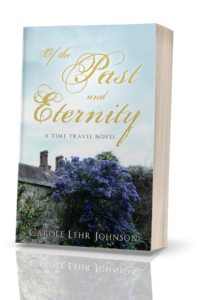
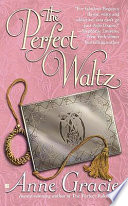
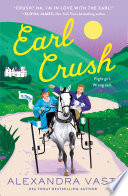
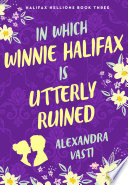
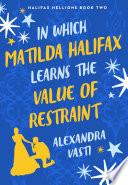
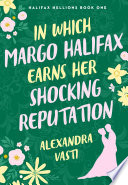
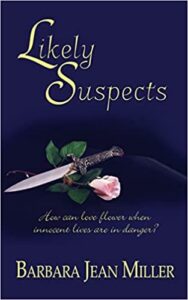
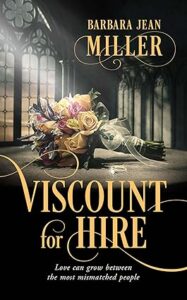



I have been reading regencies since 1970s when my mother introduced me to Georgette Heyer. I do not understand why so many authors feel their hero has to be a duke as it so unrealistic. A title does not affect whether or not I read a book.
I feel the same way but that is probably because I have read A LOT of Reg Roms. I think maybe if I was new to the genre, I may be enticed by the Dukes or Earls.
But those truly looking for a Jane Austen like experience may be disappointed…
I forgot to add I live in north east England where we have a local duke.
Is he the stuff of romance novels?